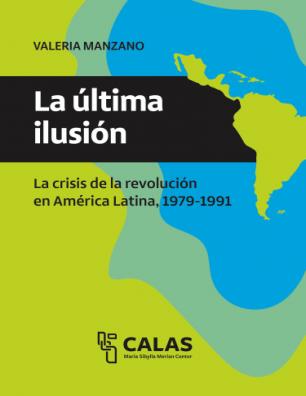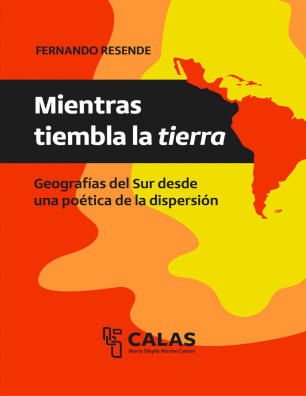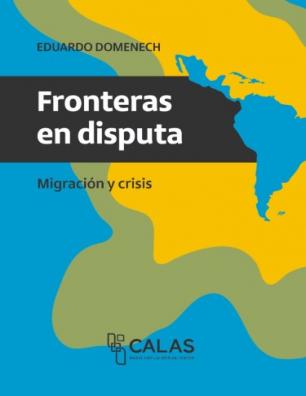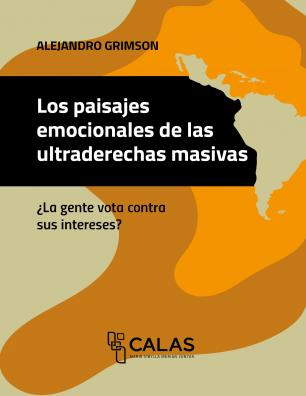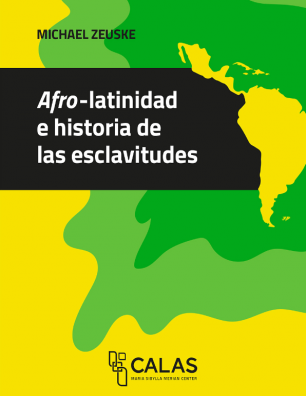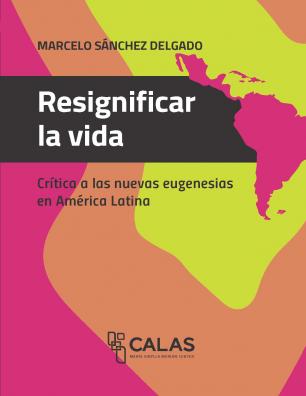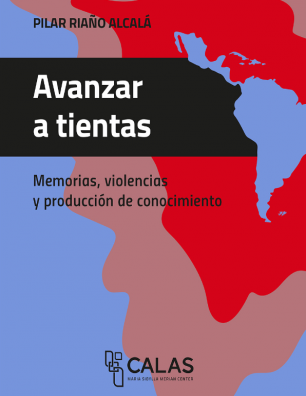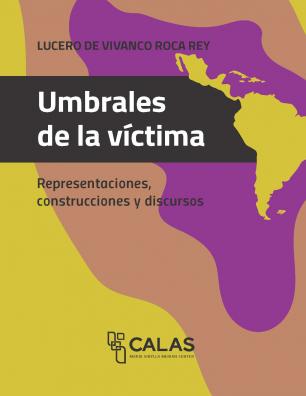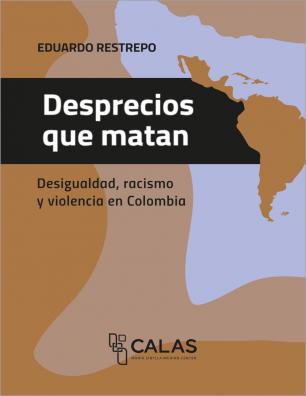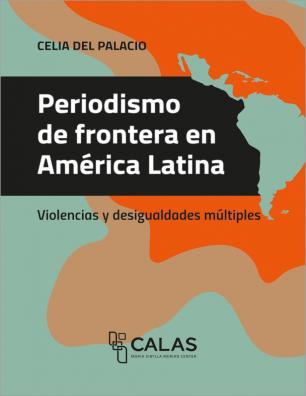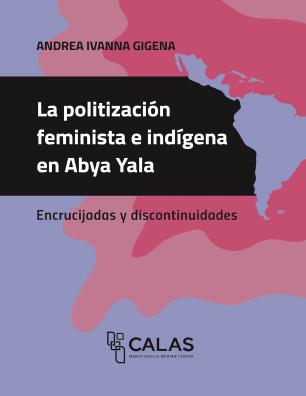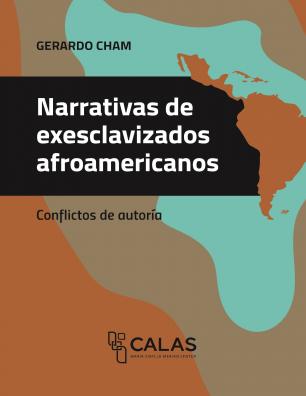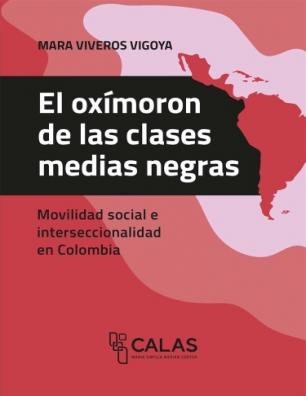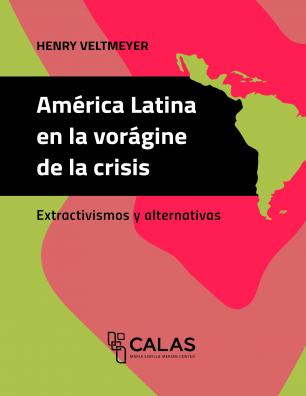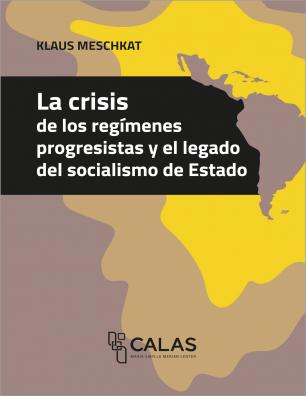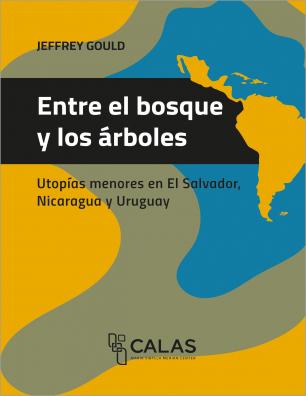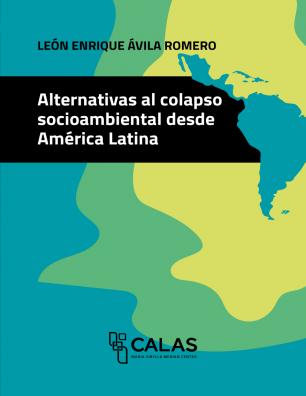Coping with Crisis
Valeria Manzano. La última ilusión. La crisis de la revolución en América Latina, 1979-1991
La última ilusión. La crisis de la revolución en América Latina, 1979-1991 analiza el ocaso de los proyectos revolucionarios latinoamericanos a partir de la experiencia del sandinismo en Nicaragua.
Fernando Resende. Mientras tiembla la tierra. Una poética de la dispersión
Este libro propone una lectura del territorio latinoamericano a partir de la siguiente premisa: allí la disputa, por la tierra o los imaginarios político-estéticos, es una constante. Estas luchas desafían la idea de enterrar o secuestrar el tiempo, cuestionando la homogeneización del espacio instaurada por la geografía del poder colonial durante más de cinco siglos, que culminó en la cosificación de la gente y la compresión de la mirada.Fernando Resende utiliza una poética de la dispersión como método para leer el territorio desde su complejidad, sus fracturas y su movimiento.
Cinthia Wanschelbaum. El proyecto político-pedagógico del neofascismo
El proyecto político-pedagógico del neofascismo parte de una constatación brutal: la escena que creíamos improbable ya ocurrió.
Eduardo Domenech. Fronteras en disputa. Migración y crisis
En los últimos años, el campo político de las migraciones y las fronteras en América Latina y el Caribe ha experimentado profundas transformaciones. La tensión entre movilidad y control ha llevado a miles de migrantes ilegalizades a quedar varades en zonas fronterizas debido a cierres y restricciones, configurando las llamadas crisis migratorias como categoría de intervención política.
Alejandro Grimson. Paisajes emocionales de las ultraderechas masivas
El surgimiento de las ultraderechas de masas obedece a un cambio cultural muy profundo. Por motivos tecnológicos, económicos y laborales han surgido nuevos paisajes emocionales en casi toda América y Europa, una nueva era de fanatismo. La ultraderecha avanza ante los puntos ciegos de las fuerzas democráticas. Responde a una demanda ante el desencanto con la democracia realmente existente. Alejandro Grimson propone cuatro giros teórico-políticos. Proponemos una relectura de las condiciones necesarias y suficientes para que se abra una crisis de la democracia.
Michael Zeuske. Afro-latinidad e historia de las esclavitudes
Hasta alrededor de 1900, el concepto de afro no existía en la historia de las esclavitudes. Las denominaciones de origen africano servían para menospreciar a los esclavos en la esclavitud atlántica y ningún esclavo o exesclavo se hubiera descrito a sí mismo como afro. Fue Fernando Ortiz quien desarrolló el concepto en su libro Hampa-afrocubana, como seguidor de Cesare Lombroso (1906).
Marcelo Sánchez Delgado. Resignificar la vida
En "Resignificar la vida. Críticas a las nuevas eugenesias en América Latina", Marcelo Sánchez Delgado reflexiona acerca de las formas adquiridas por la eugenesia en los campos científicos contemporáneos y en el discurso-práctica del poder sobre los actuales problemas sociales latinoamericanos. Su trabajo es un debate en torno de la continuidad eugenésica y la prolongación de estos discursos en el ámbito público.
Pilar Riaño. Avanzar a tientas
Pilar Riaño interroga el campo dinámico de la memoria, sus lenguajes, iniciativas, y disputas en el más allá de las violencias masivas. En particular, examina el impacto que las fuerzas coloniales y capitalistas de desmembramiento de cuerpos, culturas y territorios tienen sobre la memoria y la capacidad de los actos de memoria de grupos subyugados o afectados por el despojo y la desaparición de recordar lo fragmentado y hacer presente lo ausente.
Lucero de Vivanco. Umbrales de la víctima
El proyecto «Umbrales de la víctima: representaciones, construcciones, discursos» propone interrogar en profundidad uno de los asuntos más relevantes, pero también más complejos respecto de la violencia y las transiciones entre violencia y paz: la categoría de víctima y el asunto de la victimización.
Eduardo Restrepo: Desprecios que matan. Desigualdad, racismo y violencia en Colombia
In a Colombia marked by violence, it would seem that some people and geographies count, while others do not so much. Enriched peoples who matter and inhabit geographies of accumulation and tranquility, often operating in the place of whiteness, contrast with other racially marked and impoverished peoples who inhabit geographies of dispossession and terror.
Celia del Palacio: Periodismo de frontera en América Latina. Violencias y desigualdades múltiples
In Latin America, freedom of expression and the right to information are constantly at risk. Based on a critique of the media models coming from the global north, Celia del Palacio analyzes the multiple inequalities of media workers in contexts of violence, in the so-called "border" zones, where they prove to be more vulnerable. Through in-depth interviews, using listening as a political action, she came to characterize the journalists and their work, which goes against the capitalist models of production, taking into account their own proposals and definitions.
Bruno López Petzoldt: Recordar para perdurar. La participación del cine en la reparación de experiencias traumáticas
Film constitutes a powerful cultural tool that operates in multiple ways in the rescue of memories, as well as in the collective reparation and interdisciplinary conceptualization of traumatic experiences in communities devastated by systematic violations of their fundamental rights. It reviews and makes perceptible the prolongations of silenced or legitimized political violence both in the individual and in the social fabric disrupted by disturbing traces that disrupt existence and coexistence.
Andrea Ivanna Gigena: La politización feminista e indígena en Abya Yala. Encrucijadas y discontinuidades
Based on dialogues and the collection of documentary material in seven countries of three sub-regions during a decade, Andrea Ivanna Gigena addresses in this essay the feminist politicization in Latin America and the Caribbean / Abya Yala in its relation with the women of the "Plural Indigenous Movement". She reflects on the historical conditions and genealogical constructions on which we are currently discussing or disputing the question of the subject of feminism.
Gerardo Cham: Narrativas de exesclavizados afroamericanos. Conflictos de autoría
The central subject of the book is the conflict unleashed by the authorship of autobiographies written by people of African descent, enslaved in the Americas, during the 18th and 19th centuries. The book deals with the cases of three male and one female author whose testimonial narratives have been widely disseminated since they were written: Olaudah Equiano, Mary Prince, Juan Francisco Manzano and Mahomma Gardo Baquaqua.
Mara Viveros Vigoya: El Oxímoron de las clases medias negras. Movilidad social e interseccionalidad en Colombia
Addressing the existence of a black middle class in Colombia is not only difficult but an apparent contradiction, an oxymoron, because black people are inevitably imagined as poor and "lower class". But are there not other class experiences within this population? In order to respond to the research gap on this social group, this essay examines the configuration of the black middle classes since the late 1930s, based on life histories of members of three generations of families from the Pacific and Caribbean region who identify themselves as part of this class.
Henry Veltmeyer: América Latina en la vorágine de la crisis. Extractivismos y alternativas
This essay is an extended inquiry into the dynamics of development and resistance unleashed by the advances of extractivism, a form of capitalism characterized by a multidimensional crisis of global scope. Extractivism takes many forms, but the epicenter of extractivism in its most recent incarnation is Latin America. The region has been the main target of its negative socioecological impacts, but also the setting of the most powerful forces of resistance.
Klaus Meschkat: La crisis de los regímenes progresistas y el legado del socialismo de Estado
Progressive regimes find themselves in a serious crisis. Those who are not satisfied with denouncing the predictable machinations of "imperialism" should seek the internal reasons for the failure of the proclaimed "socialism of the 21st century". Why have such regimes, which owe their emergence and early successes mainly to the mobilization of the masses, been unable to maintain the active support of the majority of the population? The answer is sought here by resorting to the record of the Latin American left.
Jeffrey Gould: Entre el bosque y los árboles. Utopías Menores en El Salvador, Nicaragua, y Uruguay
This book presents cases of social experiments in El Salvador, Nicaragua, and Uruguay. In these spaces, where horizontal and multi-class communication flourished, Jay Winter's concept of minor utopias is suitable. This essay is inspired by Winter's important work, tracing what he calls the "visions of partial transformation," which coexisted temporarily with the great narratives of social transformation, but then lost their proper place in the historical record.
Pablo Alabarces Pospopulares: Las culturas populares después de la hibridación
The book offers an in depth balance of the debates that have organized the studies on Latin American popular cultures for the last thirty years. Simultaneously, it proposes new perspectives in times of crisis for the category: the central question is what does the popular mean today? The relationship between popular cultures and mass culture has changed radically in this century, in a way not foreseeable by classical texts.
León Enrique Avila Romero: Alternativas al colapso socioambiental desde América Latina
Latin America is facing a serious environmental crisis, which is leading the subcontinent to a collapse, understood as a shift in society and in the current way of living. This ecological crisis has been intensified by the entrenchment of the neo-liberal economic model and neo-extractivism, which has led to a dispute over common goods.


